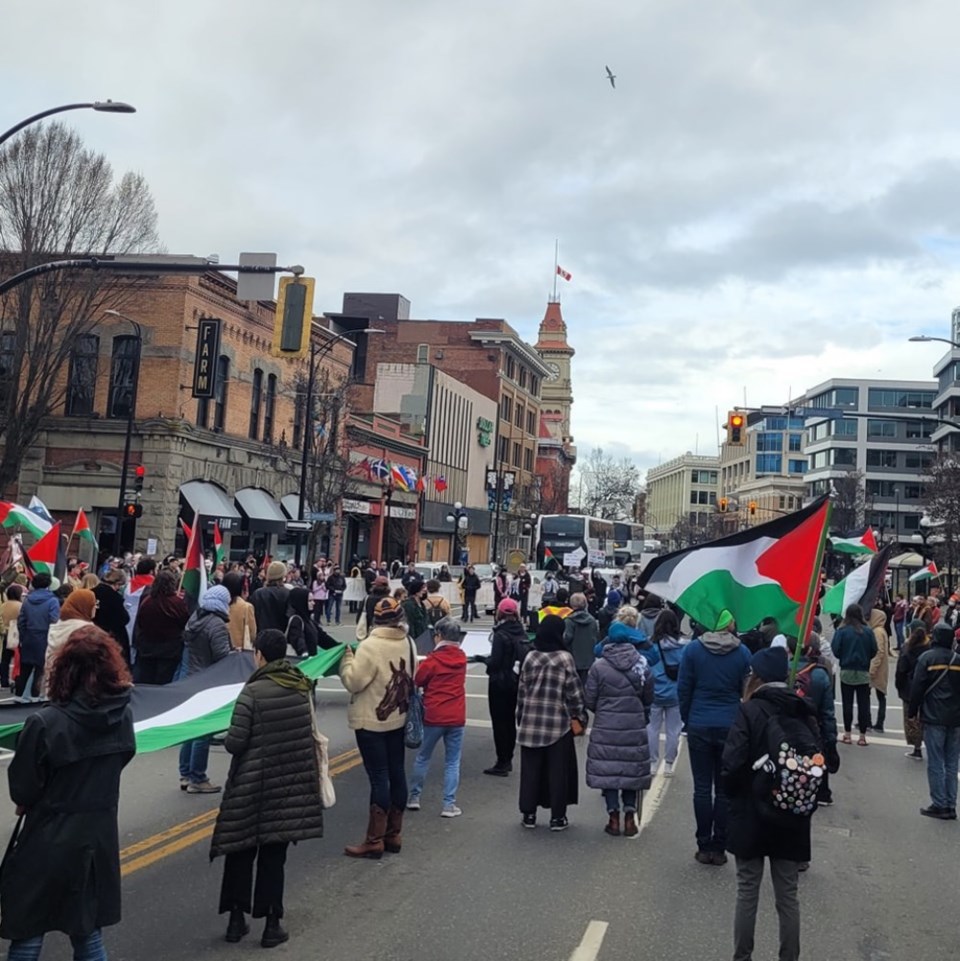It is heartening seeing rallies for Gaza each weekend at the BC legislature. I have heard Jewish, Muslim, Christian, and non-religious voices crying out for an end to war, an end to violence and death for Palestinians, including many children. Over time I am getting to know more of these neighbours who gather, marching and rolling together through downtown Victoria. Hundreds of people yearning for open futures for friends and family.
There is a strength among organizers whose lament pours out through the ritual act of taking up space in our streets. It is a way to give voice to the voiceless, people in Gaza who have limited access to communication. People whose home exists one day and destroyed the next. People like you and me, who cannot access enough food, water, or medical attention. People who are told to seek refuge to avoid bombing, but who have nowhere to go.
Sometimes people ask me as a Christian leader how we find our bearings in times like this. One way is listening to colleagues and partners in the area, which for us as Lutherans includes the Evangelical Lutheran Church in Jordan and the Holy Land - listening to these colleagues’ sermons, podcasts, and lectures often available online. It can also include supporting ecumenical events, such as the recent Pilgrimage for Gaza organized by Broad View United Church in Victoria.
We also find our way into lament through religious traditions. For example for Christians, Holy Week leads up to Easter and overlaps with Purim and Ramadan, holy times for Jewish and Muslim friends as well. In the Christian tradition, while we journey towards Jesus’ death on Good Friday, there are also teachings of love and service. Maundy Thursday, the day before Good Friday, is about Jesus giving the disciples a new commandment to love one another. He illustrates this commandment of love by inviting them to share a meal, the Last Supper, including the disciple who betrays him. At the meal Jesus also teaches love by washing the disciples’ feet - a humbling act of serving others, a ritual we continue today. For Jesus, acts of love are necessarily lived out through action.
Despite that Jesus is about to be betrayed and executed by the Roman state, Jesus’ focus remains upon loving others. Unfortunately the Christian tradition has been heavily spiritualized and many Christians reduce Holy Week and Easter to escaping this world into heaven. However the promise of an Easter dawn includes liberation in this life. The story of the cross and empty tomb are one of freeing people of violence, inequality, and oppression today. Jesus journeys towards danger, trusting that a better future for the disciples and all people is possible.
Love of neighbour includes good faith conversations with neighbours with whom we disagree. It is trusting that our shared humanity opens new possibilities for shared futures.
Lyndon Sayers is co-pastor at Lutheran Church of the Cross and co-host of the CFUV podcast “Let’s Talk Faith and Justice.”



